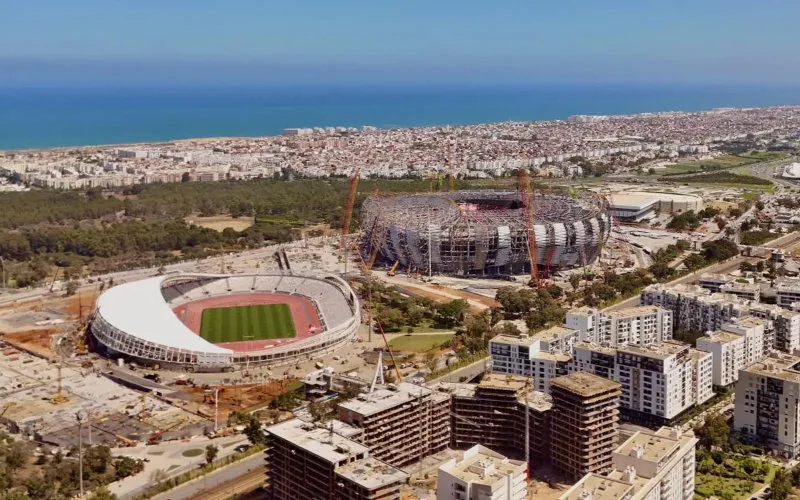Morocco Invests Billions in Infrastructure for Major Soccer Tournaments

In view of hosting the Africa Cup of Nations (CAN 2025) and co-hosting the 2030 World Cup alongside Spain and Portugal, Morocco is accelerating its sports and road infrastructure.
The organization of sporting events is a development lever that offers significant economic and investment opportunities, stated Fouzi Lekjaa, president of the Royal Moroccan Football Federation (FRMF), on Tuesday in Rabat, during his participation in a panel on investment in sports, as part of the 2025 edition of the "Global Growth Conference" (GGC), organized by the Amadeus Institute. He expressed Morocco’s willingness and commitment to make sporting events such as the Women’s Africa Cup of Nations (CAN) football (July 5-26, 2025), the U17 Women’s World Cup football (October 17 - November 8, 2025), the Men’s Africa Cup of Nations football (December 21, 2025 - January 18, 2026), and the 2030 World Cup it will host "historic moments, allowing for future prosperity."
According to the Deputy Minister in charge of the Budget, these major sporting events require the upgrading of road, airport, and football infrastructures, which represents investment opportunities worth billions of dollars. He added: these investment opportunities also concern other areas such as logistics, tourism, and strengthening accommodation capacity. "In this investment puzzle, we have a menu of inclusive projects" related to different specialties and professions, which will allow all economic operators, including startups and multinationals, to have a share in the generated added value, he indicated.
Lekjaa continues: "Beyond the importance of financing, this will allow for groupings and operations between companies and the business world."
"Sport is an important lever for economic development," said Bouchra Hajij, president of the Royal Moroccan Volleyball Federation and the African Confederation of the discipline. She highlighted the potential for economic growth offered by the sports ecosystem, with a multitude of employment opportunities surrounding this ecosystem in areas such as tourism, hospitality, construction, marketing, and new technologies.
Hajij added: "In addition to mobilizing massive investments and generating considerable economic benefits, sport is also a vector of social cohesion and economic and cultural development."
Related Articles
-

Royal Air Maroc Soars: Massive Fleet Expansion Targets 200 Aircraft for World Cup 2030
29 August 2025
-

Blonde Tourist’s Nightmare: Harassment and Culture Shock in Morocco’s Streets
29 August 2025
-

Ryanair Slashes 1 Million Spanish Seats, Shifts Focus to Morocco and Italy Amid Airport Tax Hike
29 August 2025
-

Tangier’s Tourism Boom: Paradise Lost for Middle-Class Moroccans as Prices Soar
26 August 2025
-

Moroccan Milk Boycott Sours Danone’s Profits: How Social Media Activism Cost a Giant Millions
26 August 2025